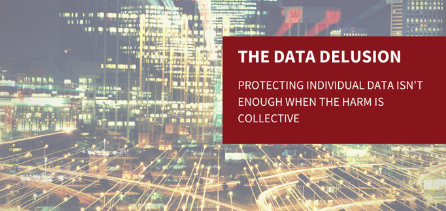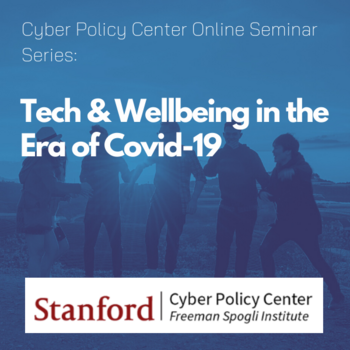In combating poverty, like any fight, it’s good to know the locations of your targets.
That’s why Stanford scholars Marshall Burke, David Lobell and Stefano Ermon have spent the past five years leading a team of researchers to home in on an efficient way to find and track impoverished zones across Africa.
The powerful tool they’ve developed combines free, publicly accessible satellite imagery with artificial intelligence to estimate the level of poverty across African villages and changes in their development over time. By analyzing past and current data, the measurement tool could provide helpful information to organizations, government agencies and businesses that deliver services and necessities to the poor.
Details of their undertaking were unveiled in the May 22 issue of Nature Communications.
“Our big motivation is to better develop tools and technologies that allow us to make progress on really important economic issues. And progress is constrained by a lack of ability to measure outcomes,” said Burke, a faculty fellow at the Stanford Institute for Economic Policy Research (SIEPR) and an assistant professor of earth system science in the School of Earth, Energy & Environmental Sciences (Stanford Earth). “Here’s a tool that we think can help.”
Lobell, a senior fellow at SIEPR and a professor of Earth system science at Stanford Earth, says looking back is critical to identifying trends and factors to help people escape from poverty.
“Amazingly, there hasn’t really been any good way to understand how poverty is changing at a local level in Africa,” said Lobell, who is also the director of the Center on Food Security and the Environment and the William Wrigley Fellow at the Stanford Woods Institute for the Environment. “Censuses aren’t frequent enough, and door-to-door surveys rarely return to the same people. If satellites can help us reconstruct a history of poverty, it could open up a lot of room to better understand and alleviate poverty on the continent.”
The measurement tool uses satellite imagery both from the nighttime and daytime. At night, lights are an indicator of development, and during the day, images of human infrastructure such as roads, agriculture, roofing materials, housing structures and waterways, provide characteristics correlated with development.
Then the tool applies the technology of deep learning – computing algorithms that constantly train themselves to detect patterns – to create a model that analyzes the imagery data and forms an index for asset wealth, an economic component commonly used by surveyors to measure household wealth in developing nations.
The researchers tested the measuring tool’s accuracy for about 20,000 African villages that had existing asset wealth data from surveys, dating back to 2009. They found that it performed well in gauging the poverty levels of villages over different periods of time, according to their study.
Here, Burke – who is also a center fellow at the Stanford Woods Institute for the Environment and the Freeman Spogli Institute for International Studies – discusses the making of the tool and its potential to help improve the well-being of the world’s poor.
Why are you excited about this new technological resource?
For the first time, this tool demonstrates that we can measure economic progress and understand poverty interventions at both a local level and a broad scale. It works across Africa, across a lot of different years. It works pretty darn well, and it works in a lot of very different types of countries.
Can you give examples of how this new tool would be used?
If we want to understand the effectiveness of an anti-poverty program, or if an NGO wants to target a specific product to specific types of individuals, or if a business wants to understand where a market’s growing – all of those require data on economic outcomes. In many parts of the world, we just don’t have those data. Now we’re using data from across sub-Saharan Africa and training these models to take in all the data to measure for specific outcomes.
How does this new study build upon your previous work?
Our initial poverty-mapping work, published in 2016, was on five countries using one year of data. It relied on costly, high-resolution imagery at a much smaller, pilot scale. Now this work covers about two dozen countries – about half of the countries in Africa – using many more years of high-dimensional data. This provided underlying training datasets to develop the measurement models and allowed us to validate whether the models are making good poverty estimates.
We’re confident we can apply this technology and this approach to get reliable estimates for all the countries in Africa.
A key difference compared to the earlier work is now we’re using completely publicly available satellite imagery that goes back in time – and it’s free, which I think democratizes this technology. And we’re doing it at a comprehensive, massive spatial scale.
How do you use satellite imagery to get poverty estimates?
We’re building on rapid developments in the field of computer science – of deep learning – that have happened in the last five years and that have really transformed how we extract information from images. We’re not telling the machine what to look for in images; instead, we’re just telling it, “Here’s a rich place. Here is a poor place. Figure it out.”
The computer is clearly picking out urban areas, agricultural areas, roads, waterways – features in the landscape that you might think would have some predictive power in being able to separate rich areas from poor areas. The computer says, ‘I found this pattern’ and we can then assign semantic meaning to it.
These broader characteristics, examined at the village level, turn out to be highly related to the average wealth of the households in that region.
What’s next?
Now that we have these data, we want to use them to try to learn something about economic development. This tool enables us to address questions we were unable to ask a year ago because now we have local-level measurements of key economic outcomes at broad, spatial scale and over time.
We can evaluate why some places are doing better than other places. We can ask: What do patterns of growth in livelihoods look like? Is most of the variation between countries or within countries? If there’s variation within a country, that already tells us something important about the determinants of growth. It’s probably something going on locally.
I’m an economist, so those are the sorts of questions that get me excited. The technological development is not an end in itself. It’s an enabler for the social science that we want to do.




